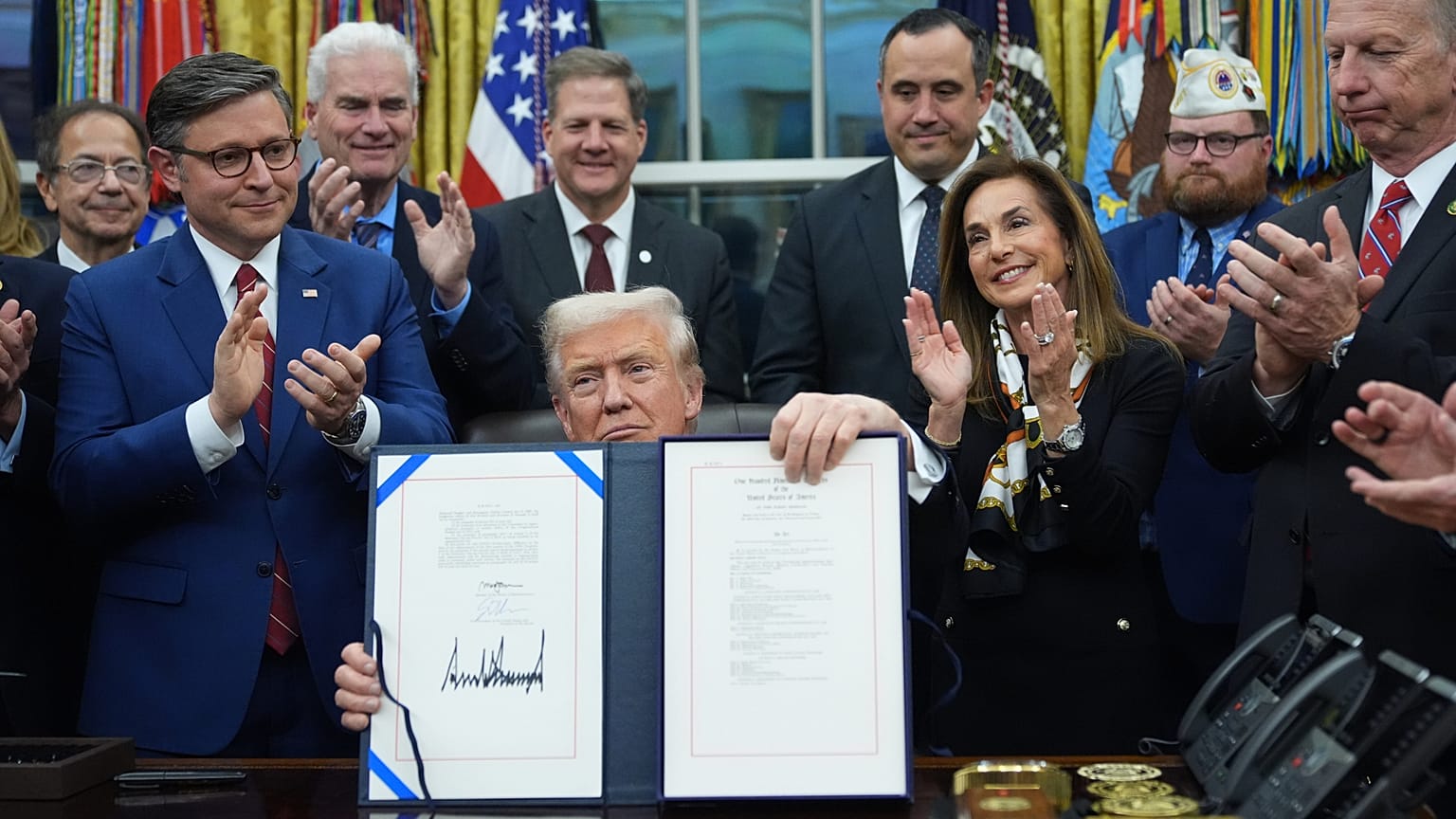Top Stories
Trump Signs Funding Bill, Ending Historic 43-Day Shutdown

BREAKING: The longest government shutdown in U.S. history officially ended today as President Donald Trump signed a crucial funding bill, just hours after the House approved the measure with a 222-209 vote. This shutdown lasted an unprecedented 43 days, inflicting financial hardship on countless federal workers and causing significant disruptions nationwide.
The Senate had already passed the funding bill on Monday, paving the way for the government to resume operations and restore paychecks for affected employees. The shutdown began when Democrats rejected a short-term spending bill lacking an extension of critical health care tax credits, which, if not renewed, could lead to more than 2 million people losing their health insurance next year, according to the Congressional Budget Office.
The newly signed legislation is a product of negotiations among Republican lawmakers and a handful of moderate Democrats. It provides funding through January 30, 2024, and includes essential provisions such as reversing the Trump administration’s firings of federal workers during the shutdown and securing food assistance programs without interruptions.
During the House debates leading up to the vote, tensions ran high. House Speaker Mike Johnson accused Democrats of using the pain caused by the shutdown to further their political agenda, stating, “They knew it would cause pain and they did it anyway.” Conversely, Democratic Representative Jim McGovern criticized the bill, claiming it leaves families without guarantees for health care subsidies, stating, “This fight is not over. We’re just getting started.”
What’s notable about the funding bill? It allocates $203.5 million to enhance security for lawmakers and an additional $28 million for the Supreme Court justices. However, the bill also contains controversial language that would allow senators to sue if federal agencies search their electronic records without prior notice, a provision seen as potentially aiding Republican senators in investigations related to Trump’s 2020 election loss.
As lawmakers gear up for further discussions, the future of health care subsidies remains unclear. Johnson has not committed to bringing the proposed extension to a vote in the House, and while some Republicans are open to discussing the issue, they also advocate for new restrictions on eligibility for the subsidies.
With the government finally back on track, the focus now shifts to whether bipartisan cooperation can be achieved on health care before the upcoming December vote in the Senate.
Stay tuned for updates on this developing story as it continues to unfold.
-

 Top Stories2 months ago
Top Stories2 months agoTributes Surge for 9-Year-Old Leon Briody After Cancer Battle
-

 Entertainment4 months ago
Entertainment4 months agoAimee Osbourne Joins Family for Emotional Tribute to Ozzy
-

 Politics4 months ago
Politics4 months agoDanny Healy-Rae Considers Complaint After Altercation with Garda
-

 Top Stories3 months ago
Top Stories3 months agoIreland Enjoys Summer Heat as Hurricane Erin Approaches Atlantic
-

 World4 months ago
World4 months agoHawaii Commemorates 80 Years Since Hiroshima Bombing with Ceremony
-

 Top Stories2 months ago
Top Stories2 months agoNewcastle West Woman Patricia Foley Found Safe After Urgent Search
-

 Top Stories4 months ago
Top Stories4 months agoFianna Fáil TDs Urgently Consider Maire Geoghegan-Quinn for Presidency
-

 World4 months ago
World4 months agoGaza Aid Distribution Tragedy: 20 Killed Amid Ongoing Violence
-

 World4 months ago
World4 months agoCouple Convicted of Murdering Two-Year-Old Grandson in Wales
-

 World4 months ago
World4 months agoAristocrat Constance Marten and Partner Convicted of Infant Murder
-

 Top Stories3 months ago
Top Stories3 months agoClimbing Errigal: A Must-Do Summer Adventure in Donegal
-

 Top Stories3 months ago
Top Stories3 months agoHike Donegal’s Errigal Mountain NOW for Unforgettable Summer Views









